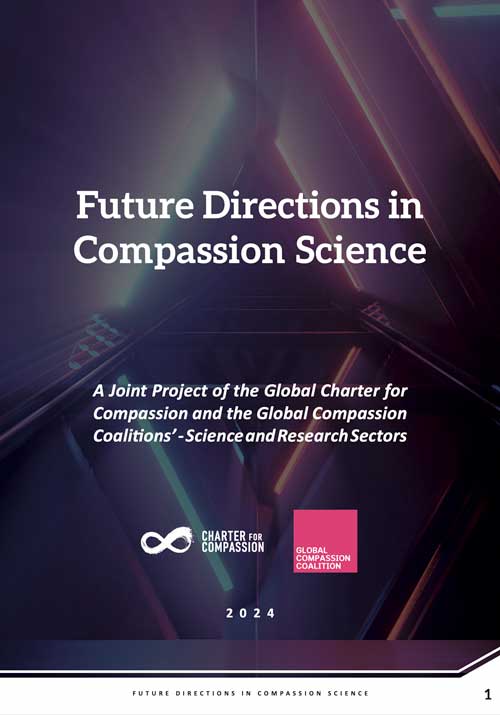
A new report on the science of compassion by Dr Lynne Reeder and her international research colleague Dr Marcela Matos on the Future Directions in Compassion Science has just been released. Some of the key points from this report include:

The recording from the presentation by Dr James Kirby on his new book – Choose Compassion: Why it matters and how it works, is now available. This recording also contains an interview between James Kirby and Lynne Reeder on specific aspects of his book – https://business.sydney.edu.au/events/research/2022/bhmb/acc-scholars-event
As the global coordinator for the Charters’ Science and Research sector, Dr Lynne Reeder is undertaking a project to define the research directions in compassion science. Drawing on the Oxford Handbook of Compassion Science, one of the first leading academic publications to synthesise the theory and the application of this discipline, she is interviewing world leading experts that contributed to the Handbook. These videoed discussions will explore the:

Dr James Kirby from the Compassionate Mind Research Group at the University of Queensland was the first to be interviewed and he covered why a Compassion-Focused parenting approach is important, why it needs to sit alongside a public health approach, and provides a description of some of the elements of this approach.
The ACC Scholars group was established in 2018 to connect compassion researchers in Australia to share their research and findings locally and internationally through the international Charter movement. The ACC Scholars forum was held in Sydney in late November 2019, examining the Australian research of compassion.
In 2020 the National Compassion Scholars Forum took place on Monday Nov 9. This National Forum entitled ‘Managing Change and Complexity with Compassion: New Research and Applications’ featured speakers including Prof William Mobley, Director of the Institute of Empathy and Compassion, UC San Diego.
Read more below.